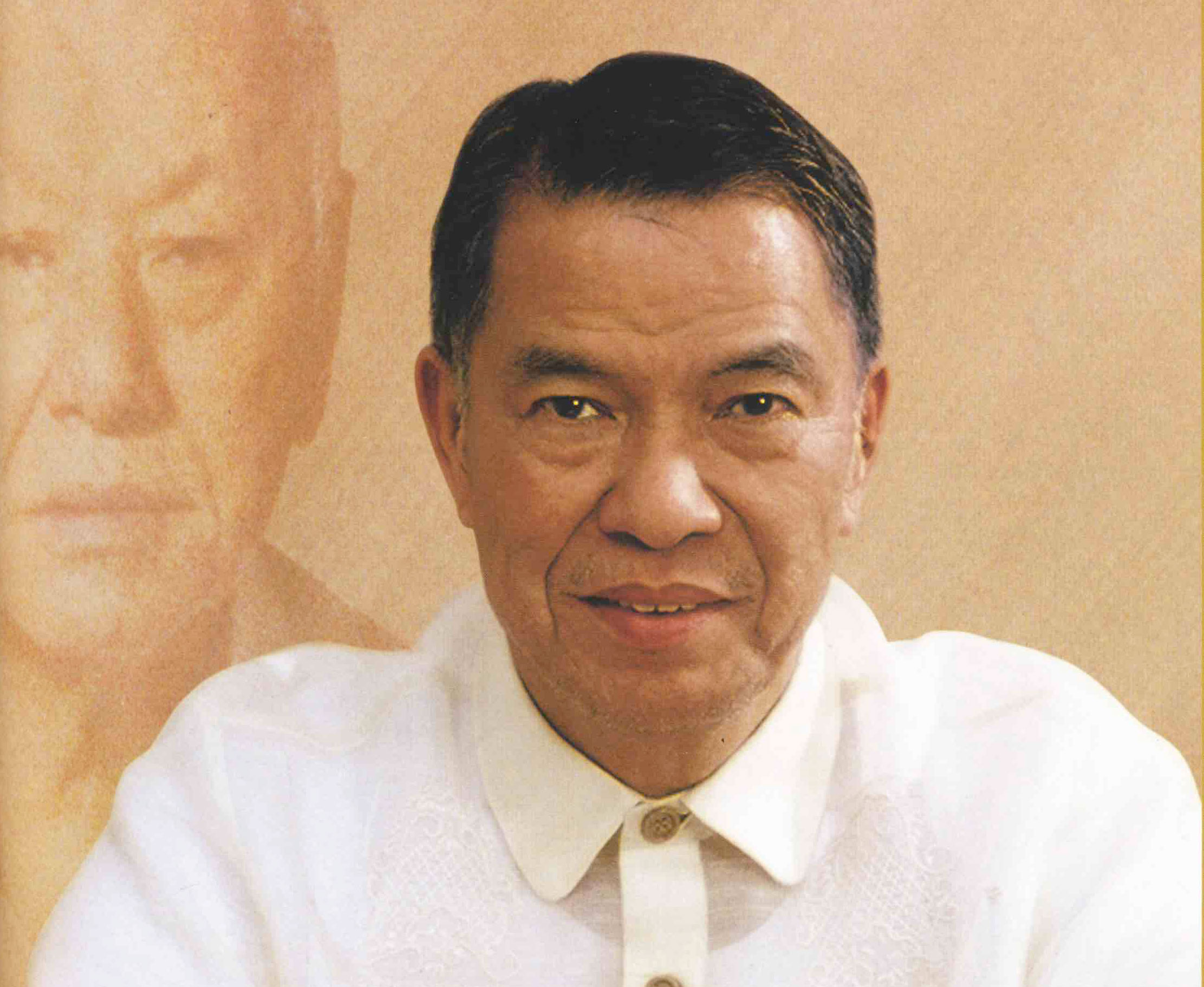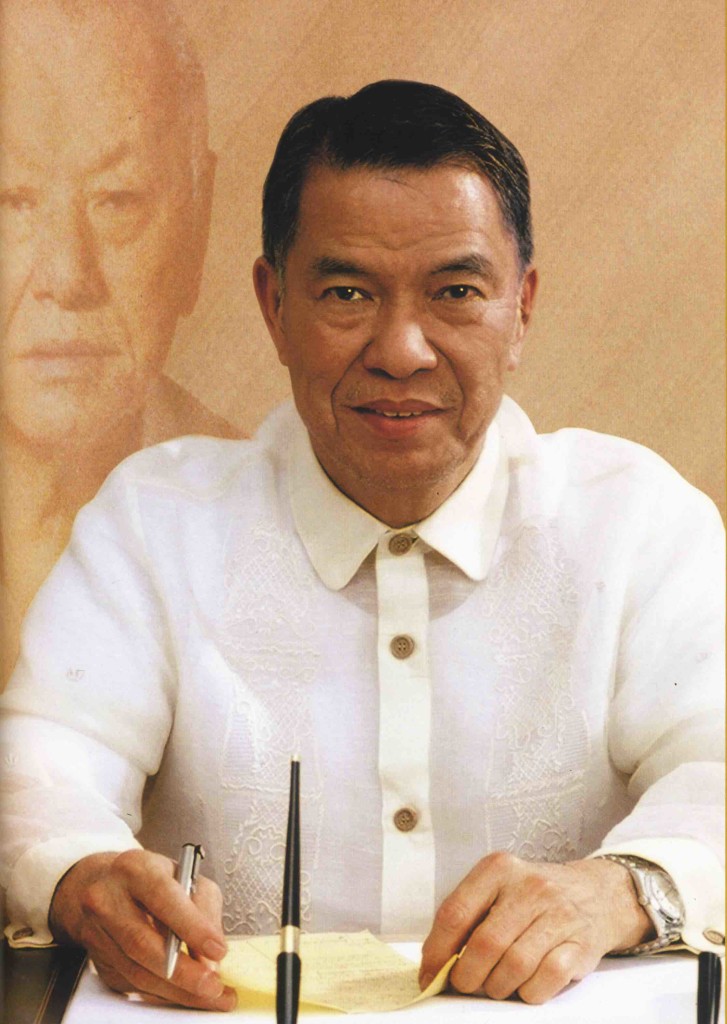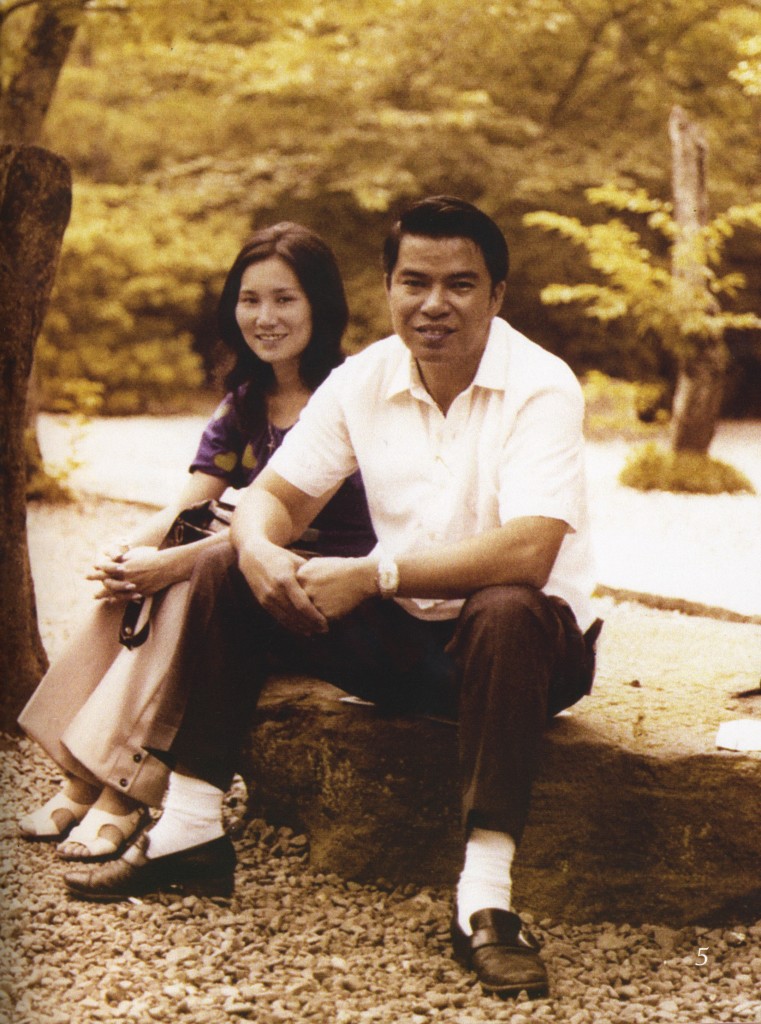By Jose Paolo S. dela Cruz
For this taipan,
being Filipino wasn’t just a matter of birth.
It was a way of life, a calling to greatness.
Many stories have been told about the man. Still, this anecdote from Taipan: Stories about Lucio C. Tan seems to sum up a great deal of who he is, away from the scrutiny of public life.
On one occasion, Carmen, Lucio’s wife, decided to give him a Rado watch with big numbers and black hands. While appreciative of the gift, the businessman expressed reservations that the diamond studs on the watch made him feel uncomfortable, and left him worried of losing it. “My mind and heart are held captive when you give me an expensive gift,†he told her. Lucio eventually lost that watch, but never his affinity for the low key.
Lucio, valued at $4.1 billion by Forbes, has always been described by his peers as simple. But he was never small.
He wasn’t small even when he was earning about P120 a day for him and his family as a college student at the Far Eastern University (half went to his father, the other half for all his expenses). He wasn’t small, even when all he could afford to enjoy back then was a meal of pan de sal with condensed milk (later including bihon when he could afford it). He wasn’t small because he always had vision.
Whether it’s in the way he set up Fortune Tobacco in 1966, or how he bought the ailing Genbank (renamed Allied Bank then Philippine National Bank) and turned it around in 1977, Lucio has proven, time and again, that he is a giant among businessmen. But cold business will always have warmer undertones for Lucio, whose motivation is more than “just money.â€
Taking flight
Though born in China, Lucio has grown to fully embrace being Filipino. And it is in his business interests that he expresses his patriotism.
Such indefatigable passion glares when one looks at the ties that bind Lucio and the nation’s flag carrier, the Philippine Airlines. “PAL, through all its ups and downs, is a way of repaying my country for all the opportunities I’ve been blessed with. My family migrated to the Philippines from Fujian, China when I was a boy. And from humble beginnings, with hard work, I was able to build a successful business enterprise. I am forever grateful to be a Filipino, and if I can be of service by shepherding my country’s flag carrier to a sunnier future, then I value and appreciate that chance,†he says.
PAL, now 75 years old, is the first airline in Asia; and perhaps, one of the few beacons left from the golden ages of the Philippine economy. But by the time Lucio’s group acquired it from the government in 1997, it has grown into what he described as “a sluggish and bloated company.†It was burdened with debt and consistently losing money, overstaffed with 15,000 employees despite just having 40 aircraft units. And then of course, there’s the Asian crisis, which was particularly unkind to big-capital businesses such as airlines.
“Despite difficulties, we overcame the challenges,†reminisces Lucio. The crisis laid the groundwork for PAL’s rehabilitation and eventual renaissance as the largest airline in the country today by revenue, fleet size and destinations served. “We harnessed the airline’s pool of dedicated and passionate workers and officers. We purchased an all-new aircraft fleet with standardized cabins and cockpits; cut off several loss-making routes; and eventually underwent a painful but necessary restructuring program. These efforts transformed PAL into a leaner, more dynamic enterprise and put us back on the road to profitability,†he shares.
While PAL is still on its road to reliving the glory days at present, it’s definitely on track. The airline company continues to achieve traffic growth of around six to seven percent. Its on-time performance track record is good, with flights operating on time more than 90 percent of the time, except for delays caused by external factors (like airport congestion).
PAL has also added five narrow-body Airbus A321 jets in 2015, pushing its overall fleet to 76 aircraft units, and in turn, transforming PAL’s fleet into one of the youngest in the world, with an average age of just 3.8 years. New routes have also been added: to New York, USA and Jinjiang, China — plus eight domestic routes, mostly from the newly revived Cebu hub. Last Dec. 2, PAL also debuted flights to Cairns, Australia, continuing onward to Auckland, New Zealand.
During difficult, turbulent times for the airline, one wonders why a businessman of Lucio Tan’s stature didn’t just simply hang his coat and move on. To this, he says, “Philippine Airlines is an icon of Filipino pride, dignity and aspirations. As the national carrier flying the flag of the Republic, PAL occupies a special place in the hearts and minds of Filipinos around the world. But beyond its iconic status, PAL is one of the true pillars of the Philippine economy.â€
As PAL celebrates its 75th year in March 2015, Lucio vows that passengers will be front and center of this momentous celebration. And aside from strengthening full five-star services and other perks that come with flying PAL, PeopleAsia also learns that the next years will be about celebrating the “heart of the Filipino.â€
Lucio’s heartbeat
Speaking of heart, the iconic taipan’s was shaped by a man named Tan Yan Kee, the father whom he regards as his greatest mentor. “He taught my siblings and I the value of education, perseverance and hard work. The most important nugget of wisdom he imparted to me is that ‘Great achievements are attained only through discipline, hard work and dedication.’â€
Carmen Tan describes the relationship as one founded on “great respect and reverence.†“After the cremation rites, Lucio was carrying the urn that had the ashes of his father. He asked his brother Harry, and me, to join him in the helicopter,†she further shares in the same book.
Once up in the air, Lucio broke his silence and said, “My father always wanted a helicopter ride. He could not have it in his lifetime because he was bedridden. Now I give him his helicopter ride.â€
To those who witnessed this man’s ascent, it’s easy to see that the media hasn’t always been kind to Lucio. His name made headlines, not just for his successes, but also for accusations of cronyism and tax evasion, among others. But despite the hurt, Lucio never dwells on being beleaguered. He chooses to move on, and ultimately lets kindness rule his heart.
Lucio’s long-time friend and PR counsel, Tony Carrion, shared how during the 1984 Olympics, the businessman promised the Filipino athletes a P1 million pot if they bagged gold. Though the athletes missed the medal, he visited the entire athletic and coaching team in Los Angeles and treated them to a meal in a restaurant, in celebration of their efforts.
In 1988 at the Seoul Olympics, he made the same promise. There were no gold medals still in the Olympic events, but the Philippine team scored a gold in bowling (a non-Olympic event). Lucio gave the money anyway. “He practices kindness with generosity. I have not seen anyone who came to him for help and was not given help. I have seen how he had helped, even his detractors,†shared Tony.
And of course, there is his trademark humility.
As previous PeopleAsia Lifetime Achievement Awardee Washington SyCip says, “I think Lucio is a very kind man. It has always amazed me how he manages to remain simple in many ways.†Washington SyCip, who is also a trustee of the Lucio Tan Group of Companies’ philanthropic arm, the Tan Yan Kee Foundation, shares an anecdote of Lucio visiting him in his New York apartment. “On his way back to the airport, I was expecting that he had a limo waiting for him. Instead, I saw him standing by the side of the street, hailing a cab,†recounts Washington.
These days, Lucio’s heart continues to evolve as a husband, father, grandfather, golfer, avid reader and history buff. He also loves to travel, meet people and make new friends. Ever addicted to knowledge, he confesses that he aims to learn at least 10 percent of anything that interests him, whether it’s medicine, astronomy or geography.
And having already proven his mettle in business, it seems that Lucio Tan, who holds a number of doctorate degrees in various fields, is focusing more on his advocacies. “As much as I can, I lead our group’s philanthropic endeavors through the Tan Yan Kee Foundation and the Foundation for Upgrading the Standard of Education (FUSE). I feel most fulfilled when I’m able to share the fruits of our enterprise to those in need. Often, my friends at the Filipino Chinese Chambers of Commerce and Industry, Inc. and I are among the first responders in many calamity areas in the country. We go there not just to bring relief goods but to see first-hand how we can be of assistance in rebuilding lives and communities,†he concludes.







